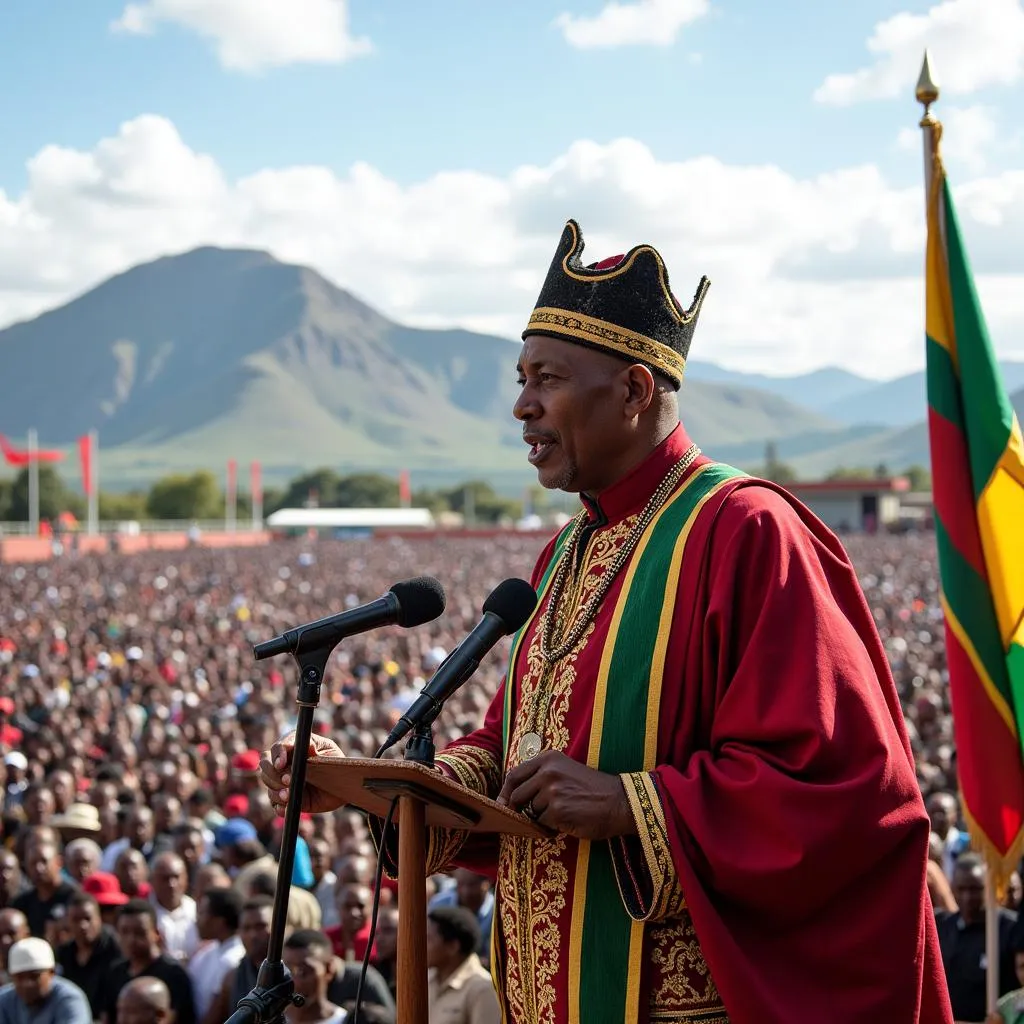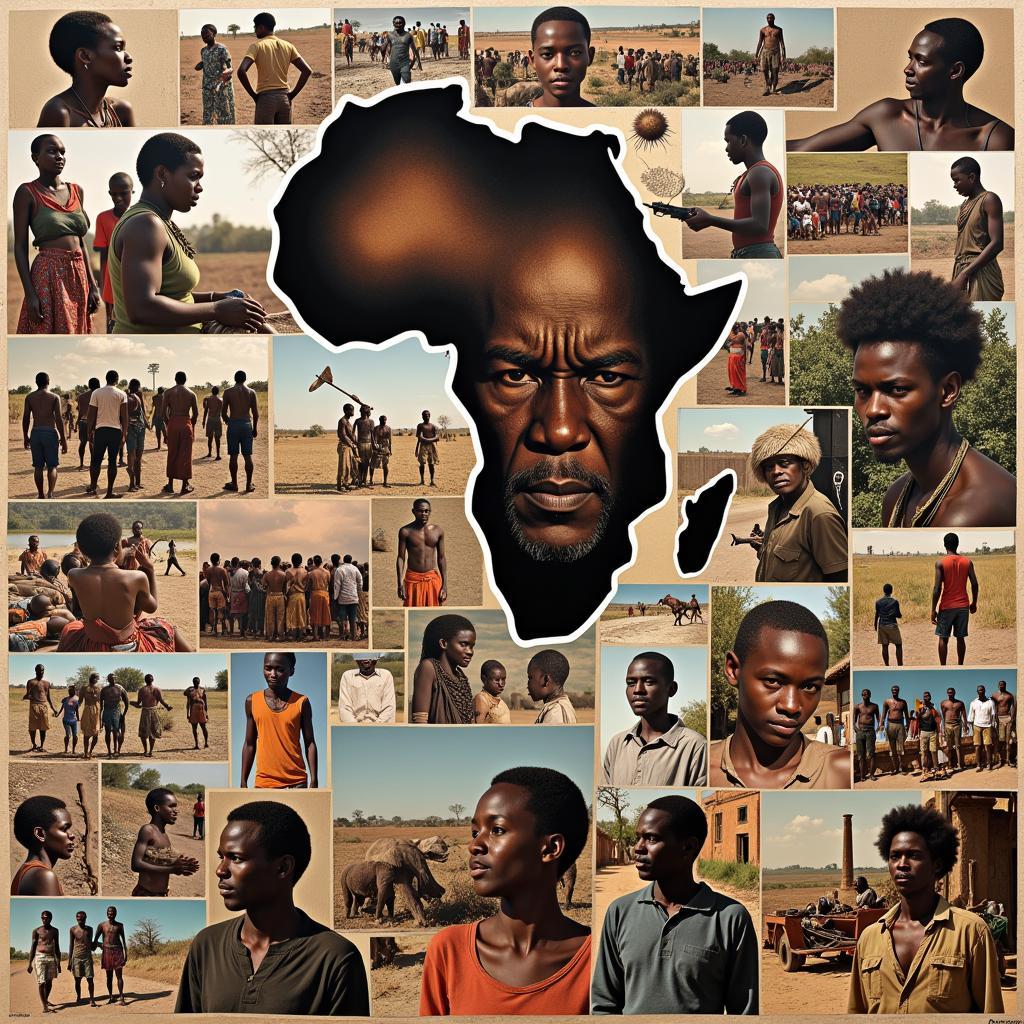The Rhythms of Africa: A Guide to African Musical Instruments
The vibrant tapestry of African culture is woven with the threads of music, and at its heart lie a diverse array of musical instruments. From the haunting melodies of the kora to the pulsating rhythms of the djembe, these instruments have been integral to storytelling, celebrations, and rituals for centuries. This article will delve into the world of African Musical Instruments, exploring their rich history, unique sounds, and cultural significance.
A World of Sound: Exploring the Variety of African Instruments
African musical instruments are as diverse as the continent itself. From the vast plains of the savanna to the lush rainforests, each region boasts its own unique musical traditions and instrumentarium. Some of the most notable instruments include:
- String Instruments:
- Kora: This 21-string harp-like instrument is a staple in West African music, particularly in the Mandinka culture. Its melodic, resonant sound is often used for storytelling and accompanying song and dance.
- Ngombi: This plucked string instrument from Central Africa, resembling a small harp, produces a soft, delicate sound that evokes a sense of intimacy and tradition.
- Mbira: Known as the “thumb piano,” this instrument from Zimbabwe utilizes a series of metal tines that are plucked with the thumbs to create a unique, percussive sound. It is often used for spiritual and ceremonial purposes.
- Wind Instruments:
- Flute: Found in various forms throughout Africa, the flute is typically made from wood, bamboo, or bone. Its range of tones can create both haunting and celebratory melodies.
- Trumpet: The trumpet, often made of brass or wood, is a staple instrument in many African cultures. It plays an important role in religious ceremonies, military processions, and social gatherings.
- Reed Instruments: Instruments like the oboe and clarinet, often fashioned from reeds or bamboo, are found in regions like Ethiopia and Sudan. Their unique, nasal tones add complexity to traditional music.
- Percussion Instruments:
- Djembe: This hand drum, with its distinctive hourglass shape and resonant tone, is a symbol of African music. Its dynamic rhythms are central to many musical styles and are often used for social gatherings, dance, and storytelling.
- Talking Drum: These drums, found primarily in West Africa, are uniquely designed to imitate human speech. They are used in a variety of contexts, including communicating across distances, accompanying storytelling, and enhancing musical performances.
- Shekere: This gourd-based instrument, adorned with beads or seeds, produces a distinctive rattling sound when shaken. It is often used in combination with other percussion instruments to create intricate rhythms and textures.
- Slit Drum: These drums, carved from logs with a slit along the top, are found in various regions of Africa. Their deep, booming sound is used in rituals, ceremonies, and signaling.
The Cultural Significance of African Musical Instruments
Beyond their musical qualities, African musical instruments are deeply intertwined with the cultural fabric of the continent. They represent:
- Storytelling: Many instruments, like the kora and talking drum, are used to narrate traditional tales, conveying history, folklore, and cultural values.
- Rituals and Ceremonies: Instruments play a vital role in religious ceremonies, initiations, and ancestral veneration. The sounds they produce evoke spiritual connections and guide participants through significant events.
- Social Cohesion: Music and dance, often led by these instruments, foster community and bring people together for celebrations, gatherings, and moments of shared joy.
- Identity: Specific instruments are often associated with particular ethnic groups or regions, serving as markers of cultural identity and pride.
The Evolution of African Musical Instruments
Over the centuries, African musical instruments have evolved with changing times and influences. Some instruments have remained largely unchanged, preserving ancient traditions. Others have adapted to incorporate new materials and techniques, reflecting the dynamic nature of African culture.
“The evolution of African musical instruments is a testament to the creativity and resilience of its people,” states renowned ethnomusicologist Dr. Amina Diallo. “These instruments have not only preserved cultural traditions but also adapted to new contexts, ensuring the vibrant continuation of African musical heritage.”
The Global Reach of African Musical Instruments
African musical instruments have transcended geographical boundaries, finding a global audience through cross-cultural collaborations and the growing interest in world music. Instruments like the djembe, kora, and mbira have become popular in international music scenes, bringing a fresh perspective to contemporary music and inspiring generations of musicians.
“The global popularity of African musical instruments is a testament to their captivating sound and cultural depth,” remarks Grammy Award-winning musician, Baba Salif Keita. “They offer a window into the soul of Africa and remind us of the power of music to transcend borders.”
African Musical Instruments: A Legacy for Future Generations
The legacy of African musical instruments is one of cultural richness, artistic expression, and enduring tradition. These instruments continue to resonate with audiences around the world, inspiring creativity, fostering understanding, and preserving a vibrant cultural heritage for future generations.
Conclusion
African musical instruments are not just instruments but vessels of stories, rituals, and cultural identity. They represent the continent’s rich musical heritage and continue to inspire artists, musicians, and audiences globally. As we explore the world of African music, we gain a deeper appreciation for the diversity and beauty of this unique continent.
Frequently Asked Questions (FAQ):
Q: What are some of the most popular African musical instruments?
A: Some of the most popular African musical instruments include the djembe, kora, mbira, talking drum, and shekere.
Q: How are African musical instruments used in traditional ceremonies?
A: Instruments like the slit drum, trumpet, and mbira are often used in religious ceremonies, initiations, and ancestral veneration to evoke spiritual connections and guide participants.
Q: Are African musical instruments used in modern music?
A: Yes, African musical instruments are increasingly used in modern music, with artists incorporating their unique sounds into genres like world music, jazz, and pop.
Q: Where can I learn more about African musical instruments?
A: You can learn more about African musical instruments by visiting museums, attending cultural events, and exploring online resources dedicated to African music and culture.
Q: How can I get started playing an African instrument?
A: There are many resources available for learning how to play African instruments, including online tutorials, workshops, and classes offered by local music schools.
Q: What is the best way to experience African music?
A: Attending live performances, exploring traditional recordings, and immersing yourself in the cultural contexts where these instruments are played are excellent ways to experience African music.
Q: What is the significance of African musical instruments in preserving cultural heritage?
A: African musical instruments play a crucial role in preserving cultural heritage by transmitting traditions, stories, and values through generations. They offer a tangible link to the past and contribute to the ongoing vitality of African culture.
Q: Are there any resources available for learning about specific African musical instruments?
A: Yes, there are many resources available online and in libraries that provide detailed information about specific instruments, their origins, construction, and musical styles.
Q: What are some notable musicians who have played African musical instruments?
A: Notable musicians who have played African instruments include Salif Keita (kora), Toumani Diabaté (kora), Sekou Kouyaté (kora), and Baaba Maal (talking drum).
Q: How are African musical instruments used in education?
A: African musical instruments are increasingly incorporated into music education programs to promote cultural understanding, enhance musical expression, and encourage exploration of diverse musical traditions.
Q: What is the future of African musical instruments?
A: The future of African musical instruments is bright, with growing international interest and ongoing innovation ensuring their continued relevance and impact on the global music scene.
Q: Are there any African musical instruments that have been adapted for modern use?
A: Yes, some instruments have been adapted for modern use. For example, the kora has been used in contemporary music, while the talking drum has been incorporated into electronic music.
Q: What are some of the challenges facing the preservation of African musical instruments?
A: Challenges include the loss of traditional knowledge, the impact of urbanization, and the influence of Western music. However, ongoing efforts to document, teach, and celebrate these instruments are helping to ensure their preservation.
Q: How can I learn more about the cultural significance of specific African musical instruments?
A: You can learn more about the cultural significance of specific African musical instruments by researching their history, traditions, and rituals associated with them. This can be done through books, online resources, and cultural organizations.
Q: Are there any ways to support the preservation of African musical instruments?
A: You can support the preservation of African musical instruments by attending performances, supporting cultural organizations, and educating others about their importance.
If you need any further information or have more questions about African musical instruments, please feel free to contact us. We are happy to assist you in any way we can.

